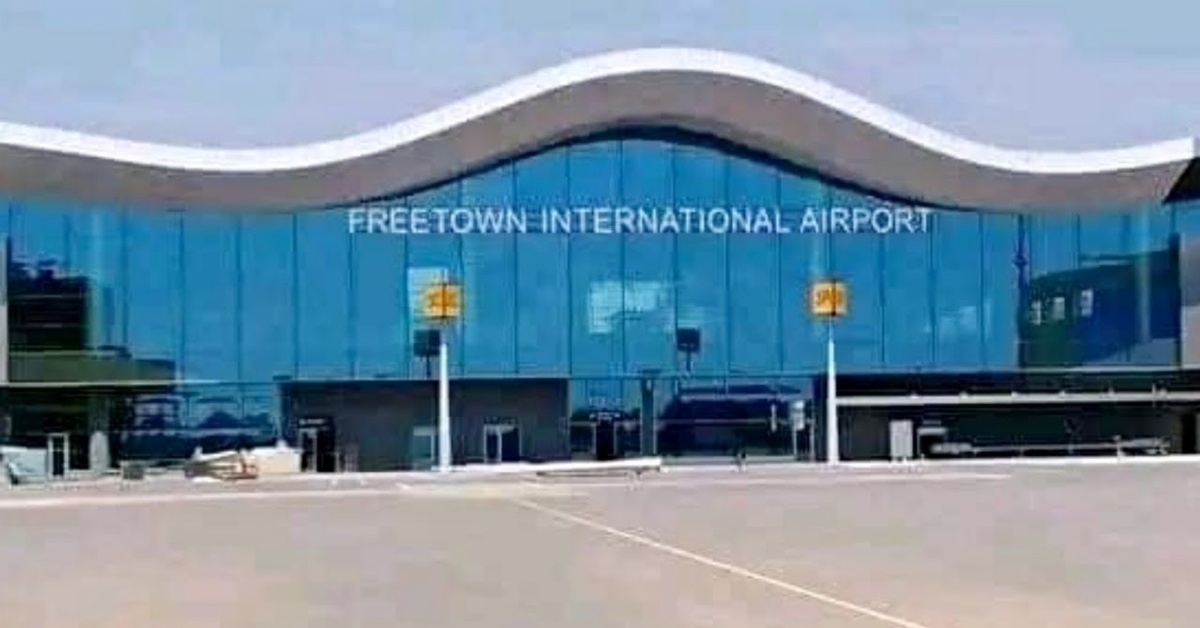Yesterday, President Julius Maada Bio commissioned the new terminal at the Freetown International Airport. The Government and the “paopariat” call it a “brand new airport”. Call it what you may, but in a slightly sophisticated society, you would not expect an animated debate over new versus expansion. But hey! This is Sierra Leone where conversations about national issues are driven by political point-scoring and directed by ungracious banality. In a very familiar pattern, the salient issues around the airport’s makeover have been drowned in the cacophony of politics. So, before we all run away to strike the latest pose and click the silliest selfies at the new edifice at Lungi, we thought we could seize the moment to highlight some very important questions surrounding the deal between the Government of Sierra Leone and SUMMA Airports.
Was the Freetown International Airport in need of a makeover? Badly! Did the Government have to make a deal that invests at least US$ 270 million into the existing airport in the same location? That depends on who you talk to, but many would tell you that the same amount, or slightly more, could get you something new in a different location that makes airport transfer a lot less complicated than it currently is. Did the Government have to go into a Build-Operate-Transfer (BOT) agreement that gives full control of the airport and most of its facilities, to a private company for at least 25 years, with concessions that allow the company to collect most of the revenue? Did the government have to grant waivers on everything related to the construction of the facility and grant permission to the private party to even operate airport transfers as part of the deal? The contract could have been better negotiated to provide an outcome that would be more beneficial to the Government and ultimately the people of Sierra Leone.
The Government’s intention to develop the country’s only airport was great. No doubt. But as they say in footballing terms, the execution was poor. We will return to substantiate this but let us quickly break down BOT, which has become the go-to model for many low-income countries, especially in Africa, for public infrastructure projects. It is a model that is based on a very straightforward principle. A government asks private investors to build a project, bringing in their own financing and other resources. The government then enters into a concession contract that allows the investors to build and run the agreed infrastructure over a period of time.
The concession agreement between the Government and the private party SUMMA, in our view, gives away too much. Yes, we needed something a lot more befitting than what we had at Lungi but that should not have translated into a desperate agreement that will leave the country with old infrastructure that will probably be falling apart in 25 years’ time. Many modern structures are far less resilient and less sturdy than the infrastructure of old. Apart from the generally poor architectural design and lack of character, their weaknesses are embellished by their glossiness. Those with bad taste justify it as contemporary and practical. That is on a light note and you can afford to smile. Seriously speaking, a 25-year-old terminal would definitely have seen better days by the time they hand it over to the State. And it will be a different generation of leaders who will have the responsibility of maintaining what could turn out to be a high-maintenance ageing infrastructure. That is a fundamental problem with such arrangements.
Some people have asked whether the private party needs up to 25 years to recoup its investment and make profit. That is also a fair question but considering the current passenger numbers and traffic, added to overheads, you would want to be gentle with them on that. However, the Government’s ambitious projections for passenger numbers and traffic tend to weaken the argument for the lengthy concession period.
The tax waivers that SUMMA enjoyed during the construction of the facility were like a blank cheque which extended to all its sub-contractors. Here is what the agreement says, as quoted by an MP during a debate in Parliament: “the private parties and its shareholders, its group, companies engaging with this project and its subcontractors as well as the transaction document, and any transaction, work or services conducted thereon shall be exempt and not be subject to any taxation during the construction of this project”. Still doesn’t sound like a raw deal!
According to experts, the evaluation of BOT bids would typically take into consideration the timeframe between the Build-Operate (BO) and Transfer (T) stages of the project. The concession period is a key evaluation criterion in a BOT model, and in any case where the public party acts desperate and weak, the private party walks away with the more favourable part of the deal.

President Bio launching the new terminal.
Another point of evaluation in such arrangements is said to be realistic assumptions and projections, as well as financial parameters. When you hear the projections and wishes of government officials regarding the benefits of the investment, you begin to wonder whether they were realistic in their assumptions at the time of making the deal. For example, when the Deputy Minister of Transport laid the agreement in Parliament, he said “a new airport terminal would maximise Sierra Leone’s geographical location advantage, unlock its vast tourist potential, increase air transport service and promote the aviation industry and most importantly, establish Sierra Leone as a regional hub for both passengers and cargo traffic.” Without actually providing any substantial evidence to back these projections, many officials have been repeating these claims. With the risk of sounding cynical, someone should remind the authorities that attaining hub status and unlocking tourist potential are not things you speak into existence like a motivational speaker. And just because you are six hours away from Europe and you build a new facility does not attract the numbers and flights you would hope for. There is a lot more that is required and we need answers to the “how” part of it, with realistic projections and assumptions.
Flights to and from Sierra Leone are exorbitant, making travel unaffordable for many. People who use Guinea, instead of flying directly into Lungi save a lot of money. What is it that Guinea is doing right that we cannot do? The taxes, one expert said. When people in government talk about tourism, what they usually do not think about is that most tourists are ordinary people who save through the year to go on holiday with serious consideration for affordability, value for money and ease of travel or convenience. If we are not deliberate about removing these barriers, we will literally be building castles in the air. And some of these costs are expected to increase with the new arrangement at the airport.
The other area of concern around the concession is the role of the Sierra Leone Airports Authority (SLAA) which is legally charged to manage the airport at Lungi. It is a statutory body whose role has been significantly cut as part of the concessions given to SUMMA Airports. The private party in the agreement will take over most of the functions of the SLAA, making the statutory body almost redundant. During the parliamentary sitting on the agreement, the Deputy Minister of Transport and Aviation tried to reassure MPs that the SLAA’s role would be intact under the new arrangement. However, the Air Traffic Control role he referenced is only safeguarded by international requirements and he inadvertently created a picture that shows the SLAA becoming a service provider and tenant on its own property. The agreement clearly states that: “all those aeronautical fees and all other revenues from the Airport shall be collected solely and exclusively by a private party [meaning SUMMA Airports] during the entire operation period and shall not be subject to any deduction allocation or sharing with the public party or any third party.”
Ok. So we are conscious that this has been an unusually long editorial but the issues are many and it is important that we highlight these questions amidst the politics and noise that dominate the airport conversation. Again, the idea to develop the airport was brilliant. If there is anything everyone probably agrees on, it is the fact that Lungi, as it was, was nothing to be proud of. We deserved better. Now we have something that looks way better but the terms are very questionable and we believe SUMMA Airports, the private party, walked away with a good deal, while the State got a raw deal thanks to poor negotiating and desperation.
Whatever you are up to this weekend, if it includes flying out of Freetown International Airport, please take a picture at the new terminal. It is a way of letting the majority see, for they might never use the airport because air travel is too expensive and many people are too poor to travel by air.
Source: Engage Salone


 1 Comment
1 Comment
